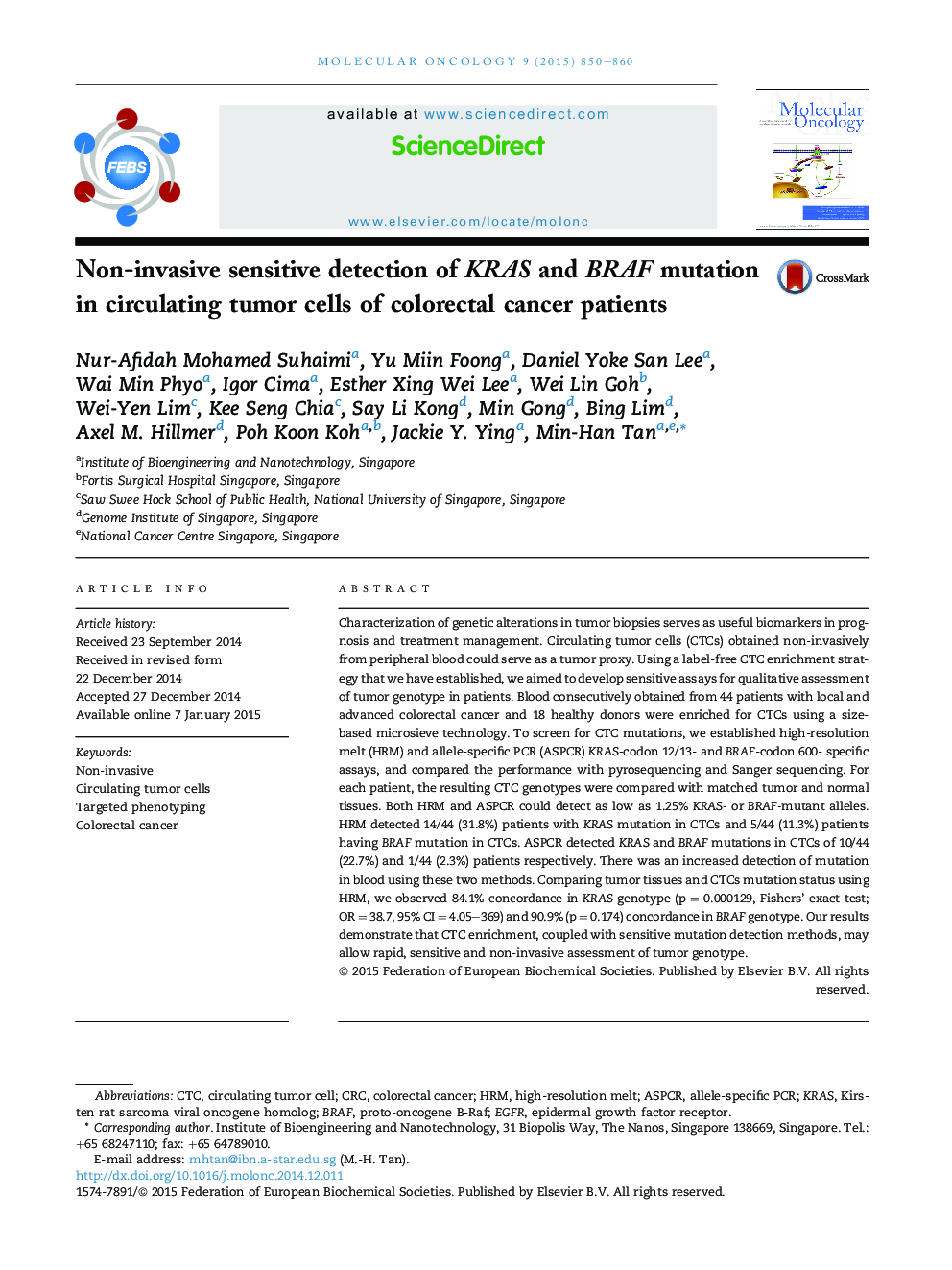| Article ID | Journal | Published Year | Pages | File Type |
|---|---|---|---|---|
| 2145555 | Molecular Oncology | 2015 | 11 Pages |
•KRAS and BRAF mutation analysis are current clinical standard for patients receiving chemotherapy.•These markers predict outcomes of anti-EGFR therapy in colorectal patients.•Circulating tumor cells (CTCs) from blood enables non-invasive evaluation of tumor status.•Our optimized PCR-based assays could detect concordant mutation in CTCs and tissues.•This approach enables a rapid, qualitative and non-invasive assessment of tumor genotype.
Characterization of genetic alterations in tumor biopsies serves as useful biomarkers in prognosis and treatment management. Circulating tumor cells (CTCs) obtained non-invasively from peripheral blood could serve as a tumor proxy. Using a label-free CTC enrichment strategy that we have established, we aimed to develop sensitive assays for qualitative assessment of tumor genotype in patients. Blood consecutively obtained from 44 patients with local and advanced colorectal cancer and 18 healthy donors were enriched for CTCs using a size-based microsieve technology. To screen for CTC mutations, we established high-resolution melt (HRM) and allele-specific PCR (ASPCR) KRAS-codon 12/13- and BRAF-codon 600- specific assays, and compared the performance with pyrosequencing and Sanger sequencing. For each patient, the resulting CTC genotypes were compared with matched tumor and normal tissues. Both HRM and ASPCR could detect as low as 1.25% KRAS- or BRAF-mutant alleles. HRM detected 14/44 (31.8%) patients with KRAS mutation in CTCs and 5/44 (11.3%) patients having BRAF mutation in CTCs. ASPCR detected KRAS and BRAF mutations in CTCs of 10/44 (22.7%) and 1/44 (2.3%) patients respectively. There was an increased detection of mutation in blood using these two methods. Comparing tumor tissues and CTCs mutation status using HRM, we observed 84.1% concordance in KRAS genotype (p = 0.000129, Fishers' exact test; OR = 38.7, 95% CI = 4.05–369) and 90.9% (p = 0.174) concordance in BRAF genotype. Our results demonstrate that CTC enrichment, coupled with sensitive mutation detection methods, may allow rapid, sensitive and non-invasive assessment of tumor genotype.
